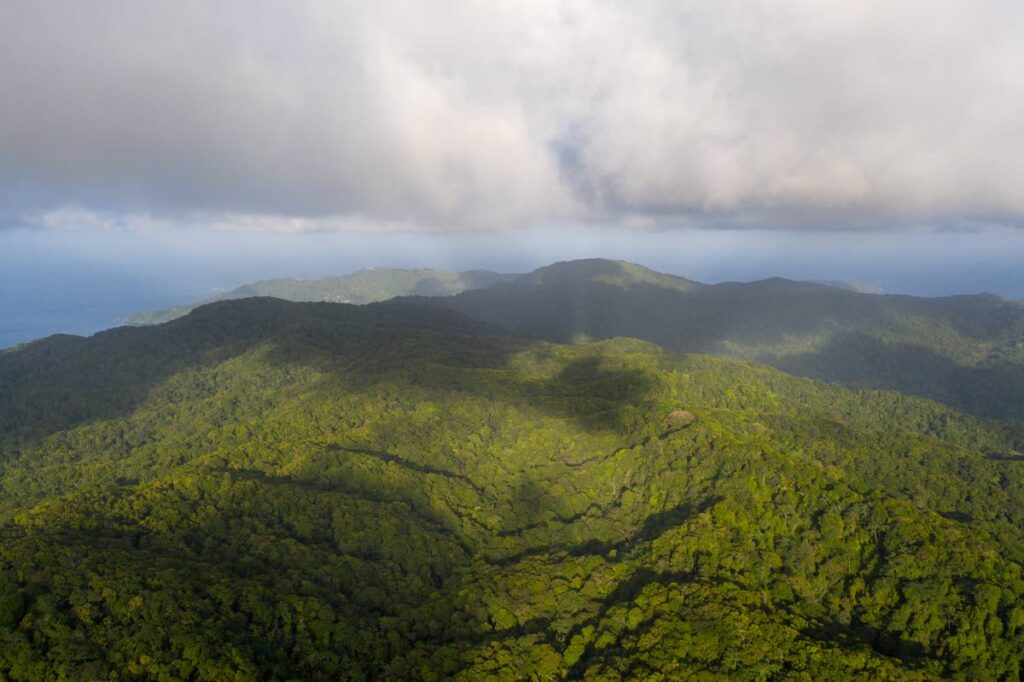Forests keeping world healthy

The United Nations has designated March 21 (yesterday) as International Day of Forests, also known as World Forestry Day. The theme for 2023 is "Forests and Health"
ANTONY R RAMNARINE
THE WORLD environment owes much of its state of health to the presence of forests. So too does human survival and welfare. Whenever one considers the negative effects of climate change, pollution, flooding, species extinction and desertification, it is comforting to know that nature’s last bastion, trees, continue to provide their ageless contribution to mitigate such deleterious effects which could arise.
The major timeless benefits of forests toward the improvement of the quality of life for all mankind are well known. As the “lungs of the Earth” trees provide oxygen and remove carbon dioxide from the atmosphere. Forests influence rainfall through the hydrologic cycle, they provide timber for construction and paper production, provide recreational opportunities and habitats for most terrestrial species of wildlife, and, equally important, trees continue to be the main source of chemicals used to manufacture medicinal drugs, pesticides and perfumes.
These benefits and more are nature’s way of keeping planet Earth healthy and contributing to the physical and psychological welfare of mankind.
For example, clean potable water, which is essential for life, is arguably the most precious natural resource in the world, and it is through the presence of forested watersheds that a constant and adequate supply is produced. Countries which do not have such protective forest cover, such as Haiti, suffer perennial water problems throughout the year.
Unfortunately, global overpopulation and certain technological developments over the past 70 years have begun to create irreversible ecological changes, threatening the demise of the Earth’s regulatory processes which could lead eventually to the destruction of life as we know it.
The Food and Agriculture Organization (FAO) of the United Nations is one of the primary bodies monitoring and influencing forest development globally. The FAO estimates that approximately 30 per cent of the Earth’s land surface is covered by forests but is in constant decline by as much as ten million hectares per year, with dire consequences.
The strategies that are required to regain ecological balance are by halting deforestation, restoring forests and sustainably using forests for their wide array of goods and services.
In spite of the efforts of governments and conservation organisations worldwide, it is imperative that new initiatives be taken urgently to arrest the escalating threats to the environment. Many such ideas and recommendations have been forthcoming from the Paris Agreement, the Convention on Biological Diversity and more recently the United Nations Climate Change Conference (COP27), with governments agreeing on the way forward to limit climate change through a number of financial, industrial and ecological mechanisms.
The underlying goal in all of these recommendations is to sustainably manage the planet’s ecosystems for people and their need for food security, medicines, fresh air and water, shelter and a clean and healthy environment in which to live.
Trinidad and Tobago was well represented at the recent COP27 by the Minister of Planning and Development and her team, who successfully lobbied for “loss and damage” funding for vulnerable countries hard hit by disasters such as flooding or drought caused by climate change.
However, TT should also focus on the prevention and mitigation of such events by working closely with nature through accelerated reforestation of our depleted forest resource.
Trees are nature’s way of creating ecological balance in the environment, and every effort should be made by the Forestry Division, environmental NGOs, the energy sector and civil society to embark upon such planting projects, utilising not only timber species in forest reserves, but also practising agroforestry on hillsides, planting mangrove forest along coastlines and re-establishing tree cover on idle private lands in vulnerable areas such as the western Northern Range.
Prevention is better and cheaper than cure, and this country should take example from many Asian and African countries that boast of such reforestation success in the last decade. In doing so, we will also become eligible for selling carbon credits to the developed countries, further enhancing the potential for revenue and re-establishing TT to its former glory as a leader in forestry in the Caribbean.
Protecting the environment and scarce natural resources is everyone’s business. The ultimate benefits are for our own survival and welfare. Every effort at greening the economy and the environment by government, industry and society must be encouraged and applauded. Our future depends on it.
Antony R Ramnarine is a retired conservator of forests


Comments
"Forests keeping world healthy"